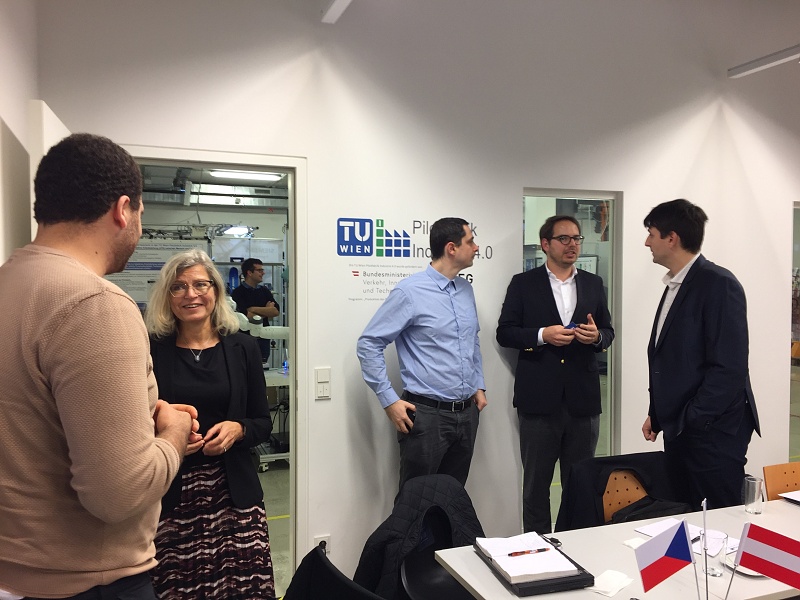The second meeting of testbeds took place in Vienna and Wiener Neustadt, Austria, on 24 and 25 November. This time, TU Wien and the University of Applied Sciences Wiener Neustadt hosted the meeting.
Cooperation with industrial partners was the main discussion topic on the first day of the meeting. Unfortunately, the discussion confirmed one of the main assumptions of the project's organisers: it is usually very difficult to establish productive partnerships between a university and small and medium-sized enterprises. Big companies and multinational corporations are much more open to this kind of partnership: by their nature, they can afford to assign a part of their funds and namely human resources to carry out a research or manufacturing project of this nature. For small and medium-sized enterprises, the situation is much more complicated. Most of their capacities are oriented towards a completion of specific orders, acquiring new clients and making profit. They often lack available human resources to do support or research projects. Another major limiting factor is that getting a specific thing done through cooperation on a project with an academic institution is time-consuming. It takes several months to prepare the project and wait for it to be assessed. The completion of the project itself is time-consuming as well. For universities, projects are only a part of their activities. The responsibilities of scholars include namely teaching, research, and publishing; this is why they cannot compete with regular supplier-customer relations in terms of the delivery time of projects. Companies then often prefer business sector to implement an idea: it is more expensive but much more time-efficient.
In order to change the current situation and increase the interest of small and medium-sized enterprises in cooperation on projects, academic institutions could take the following measures:
Second, the participants discussed the possible areas of cooperation between the testbeds. Based on previous presentations, 4 topics were selected and representatives of individual testbeds could choose the ones they wanted to discuss.
Specific possibilities of cooperation on research or projects were then discussed in smaller groups. At present, the use of machine vision for the control and optimisation of robot movement or the combination of virtual models of components with a digital twin based on AAS seem to count among interesting opportunities for cooperation. These are only some examples of areas in which the representatives of testbeds plan to cooperate on joint project activities.

Last but not least, the participants went on a tour of laboratories of the host universities. On the first day, they visited the Pilot Factory at TU Wien which has high quality facilities and equipment for the development in optimisation and virtualisation of manufacturing. A facility for 3D printing using metal materials or a system for the planning and control of manufacturing may be cited as examples. On the second day, the participants visited the laboratories of the University of Applied Sciences Wiener Neustadt. The representatives of testbeds saw automation and robotics learning laboratories and the newly open Innovation Lab accessible to the general public and small start-up companies for their development activities.